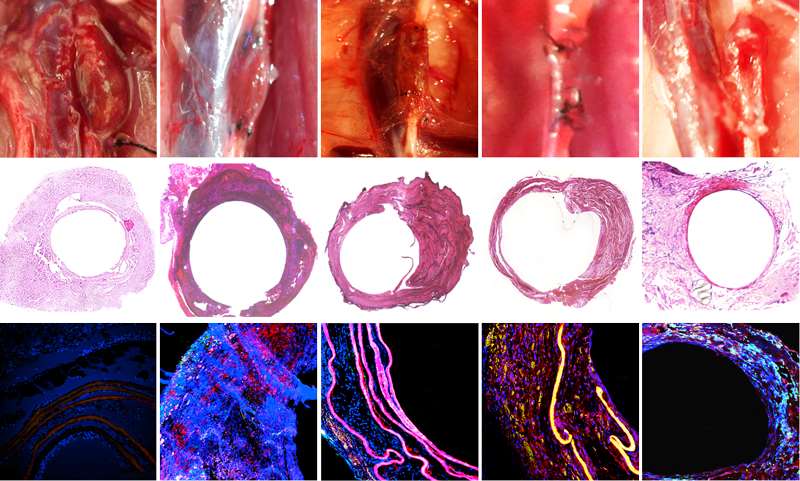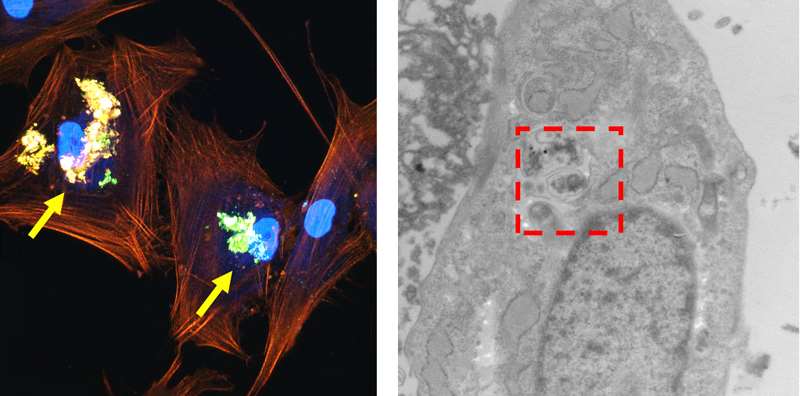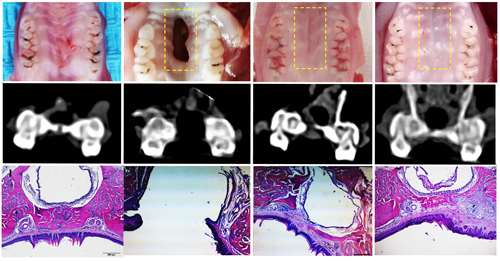TRE Lab Research
The team at the Tissue Regenerative Engineering Laboratory develops biomaterials and nanotechnology for regenerative engineering, tissue engineering, and drug delivery applications. Ongoing projects are outlined below.
Biofabrication
Developing Small-Diameter Vascular Grafts with Human Amniotic Membrane
While current clinical utilization of large vascular grafts for vascular transplantation is encouraging, tissue engineering of small grafts still faces numerous challenges. Our study aims to investigate the feasibility of constructing a small vascular graft from the decellularized amniotic membranes (DAMs).
Our DAM graft has been successfully transplanted in rat abdominal aorta and remained patent for up to 16 months with both endothelial and smooth muscle cell regeneration, which suggests that the DAM graft has great potential to be implemented as a small tissue engineered graft for future vascular transplantation.
Image
Graft integration at 1, 3, 6, 9 and 16 months (left to right) in three views: Gross, H & E staining at 1500 micrometers, and VE-cadherin at 300 micrometers (top to bottom).

From Bone to Nanoparticles
Developing a Novel Generation of Nanoparticles with Acellular Porcine Bone for Potential Orthopedic Regeneration and Imaging
Bone diseases and physiological conditions—such as osteoporosis, Paget's disease, osteosarcoma, osteoarthritis, metastatic bone cancer, hormonal status and chronic diseases—and traumatic bone injury affect millions of people worldwide and impose an increasingly heavy burden on the aging society.
Our goal is to develop a new type of bone-based particulate nanocarrier using acellular porcine bone tissues. The resultant carrier will be bone-targeted, image-guided and regenerative.
Image
In vivo cellular uptake of bone nanoparticles in porcine model, 2 views

Cleft Palate Repair
Developing an amnion-based construction for dental and bone repair
Guided bone regeneration is a new concept in large bone defect therapy that employs a barrier membrane to afford a protected room for osteogenesis and prevents the invasion of fibroblasts. The TRE Lab is developing a novel barrier membrane made from human amnion membranes that can act as a shield to invading fibrous tissues, stabilize the bone grafts and induce the necessary massive bone growth required for repairing dental or bone defects.
Image: Cleft palate repair of control, cleft, DAM and DAM-POC (left to right) at 6 weeks in gross, CT and H&E views (top to bottom)
Representative Publications
- Polymer Integrated Amnion Scaffold Significantly Improves Cleft Palate Repair
- Spatial and temporal changes of palatal cell proliferation and cell apoptosis of retinoic-acid-induced mouse cleft palate in different embryonic stages
- The study of palatal cell proliferation and apoptosis in retinoic-acid-induced mouse cleft palate varied with different developmental stages


